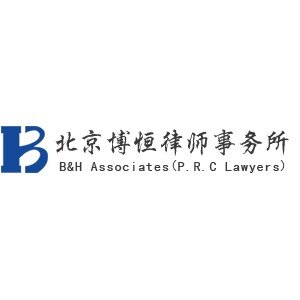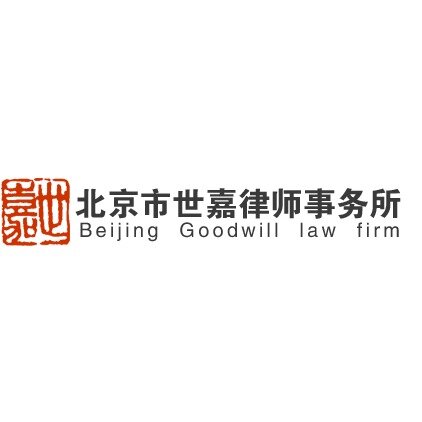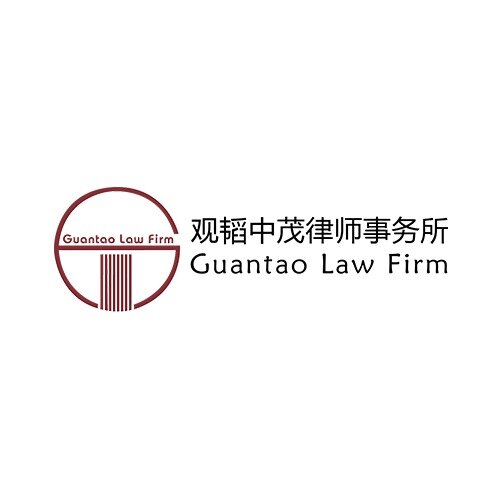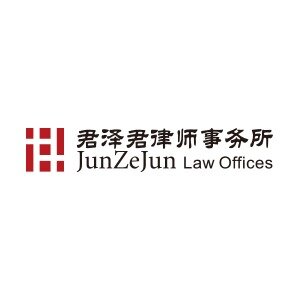Best Water Law Lawyers in Beijing
Share your needs with us, get contacted by law firms.
Free. Takes 2 min.
List of the best lawyers in Beijing, China
About Water Law in Beijing, China
Water Law in Beijing, China refers to the legal framework regulating the use, allocation, protection, and management of water resources within the city and its surrounding areas. These laws are designed to safeguard water quality, allocate water equitably among users, prevent pollution, and promote the sustainable use of water in line with national and local policies. Beijing, as the political and cultural capital of China, faces complex water challenges due to rapid urbanization, resource scarcity, and environmental concerns. As a result, Water Law plays a crucial role in balancing public interests, environmental protection, and economic development.
Why You May Need a Lawyer
Legal issues surrounding water resources in Beijing are often intricate and can significantly impact individuals, businesses, and organizations. You may need a Water Law lawyer if you encounter situations such as:
- Disputes over water use rights, allocation, or licensing
- Facing penalties or enforcement actions for alleged water pollution or overuse
- Involvement in real estate development impacting water resources or requiring water permits
- Understanding obligations related to groundwater extraction
- Engaging in agricultural or industrial activities affecting water quality or distribution
- Participating in public infrastructure projects like dams, water treatment plants, or drainage systems
- Seeking compensation for damages caused by water pollution or flooding
- Needing guidance on compliance with new water management or conservation regulations
Local Laws Overview
Beijing’s Water Law framework is governed by national laws such as the Water Law of the People's Republic of China, as well as local regulations issued by the Beijing Municipal Government. Key aspects include:
- Water Rights and Permits: Water use for industrial, agricultural, or large-scale commercial purposes requires obtaining permits. Strict quotas often apply to groundwater extraction.
- Resource Protection: Laws regulate the protection of water sources, rivers, reservoirs, and wetlands, including pollution prevention measures and restricted activities in water conservation zones.
- Water Pricing and Fees: Usage fees are imposed according to government standards, with higher fees for overuse or certain industries to encourage conservation.
- Pollution Control: Discharge of wastewater and pollutants into waterways is subject to stringent controls, with tougher penalties for violations. Industries must comply with local effluent standards and monitoring requirements.
- Emergency Management: Legal provisions mandate timely reporting and response to water contamination events or shortages, empowering authorities to take emergency measures.
- Public Participation: Recent laws encourage public input and supervision regarding water-related projects and environmental impact assessments.
Frequently Asked Questions
What is considered a violation of Water Law in Beijing?
A violation may include unauthorized water use, exceeding permitted quotas, illegal discharge of pollutants, damaging water conservation infrastructure, or failing to comply with reporting obligations related to water resources.
Do private landowners have rights to groundwater in Beijing?
Groundwater is considered a state resource. Extraction typically requires government approval and permitting. Private landowners do not possess inherent rights to groundwater without official authorization.
How are water rights obtained?
Water rights are granted through an application process to the relevant water authority. Successful applicants must meet regulatory criteria regarding intended use, conservation plans, and compliance with allocation quotas.
What penalties exist for water pollution?
Violators may face administrative fines, civil liability for damages, mandatory restoration, business suspension, and, for severe offenses, criminal prosecution under environmental and criminal law.
Can companies appeal a penalty for breaching Water Law?
Yes. Companies have the right to file administrative appeals or initiate litigation in local courts to challenge penalties, though strict procedural requirements must be followed.
Are there special regulations for industrial water users?
Yes. Industries face stricter permitting, usage quotas, mandatory installation of metering devices, reporting obligations, and must adhere to strict wastewater discharge standards.
Is rainwater harvesting allowed in Beijing?
Rainwater harvesting is encouraged in many urban areas as part of the city's water conservation efforts, though specific technical and reporting standards may apply.
What should I do if my property is affected by flooding caused by another party?
Contact local authorities to report the issue, gather evidence of damages, and seek legal advice about your rights to claim compensation or request remedial measures.
How is water pricing determined for users?
Water prices are set by government agencies based on policy objectives such as conservation, cost recovery, and social equity. Fees may vary according to type of usage and volume consumed.
Does Beijing have special water restrictions during droughts?
Yes. The municipal government can impose temporary restrictions on water usage, adjust allocation, or require prioritized use to ensure supply for essential needs during periods of water scarcity.
Additional Resources
If you need more information on Water Law or require official guidance, consider these resources:
- Beijing Water Authority (responsible for water management and permitting)
- Ministry of Water Resources of the People's Republic of China
- Beijing Bureau of Ecology and Environment (handles pollution control and enforcement)
- Local environmental protection NGOs
- Legal aid centers affiliated with Beijing law schools or bar associations
Next Steps
If you believe you need legal assistance regarding Water Law in Beijing:
- Identify your specific issue or dispute and collect all relevant documents such as permits, notices, or correspondence
- Contact an experienced lawyer or a law firm specializing in Water Law, environmental law, or administrative law
- Request an initial consultation to assess your case, understand your options, and develop a legal strategy
- Stay informed about changes in water regulations and maintain detailed records of your water use and communications with authorities
- Act promptly, especially if you face deadlines for appeals, hearings, or compliance orders
Lawzana helps you find the best lawyers and law firms in Beijing through a curated and pre-screened list of qualified legal professionals. Our platform offers rankings and detailed profiles of attorneys and law firms, allowing you to compare based on practice areas, including Water Law, experience, and client feedback.
Each profile includes a description of the firm's areas of practice, client reviews, team members and partners, year of establishment, spoken languages, office locations, contact information, social media presence, and any published articles or resources. Most firms on our platform speak English and are experienced in both local and international legal matters.
Get a quote from top-rated law firms in Beijing, China — quickly, securely, and without unnecessary hassle.
Disclaimer:
The information provided on this page is for general informational purposes only and does not constitute legal advice. While we strive to ensure the accuracy and relevance of the content, legal information may change over time, and interpretations of the law can vary. You should always consult with a qualified legal professional for advice specific to your situation.
We disclaim all liability for actions taken or not taken based on the content of this page. If you believe any information is incorrect or outdated, please contact us, and we will review and update it where appropriate.

















